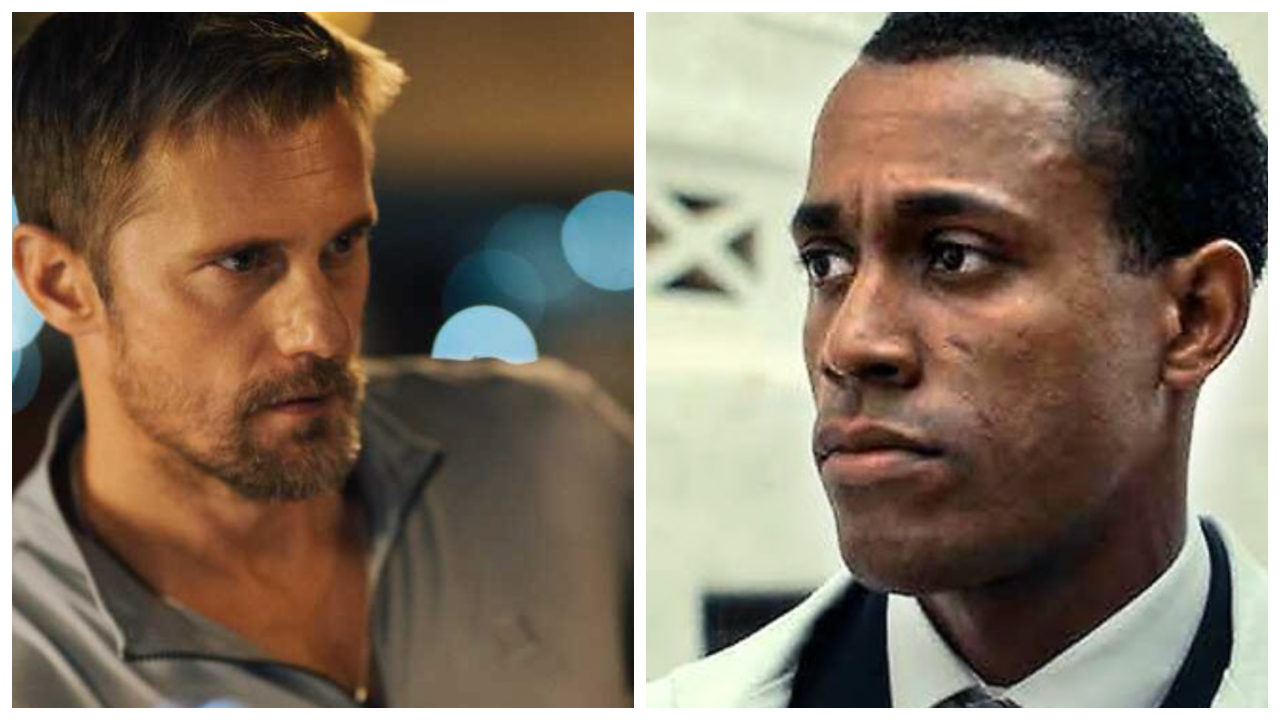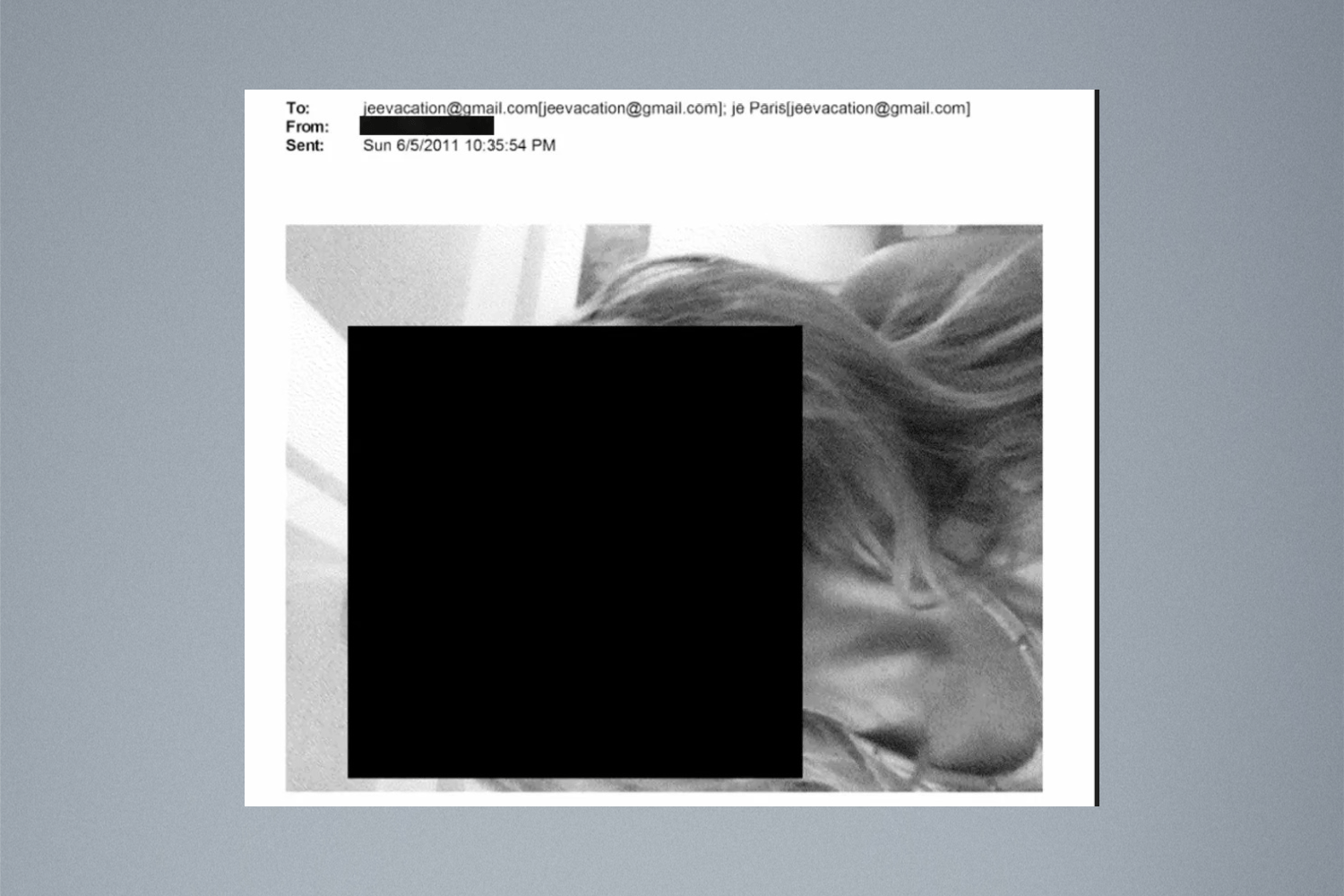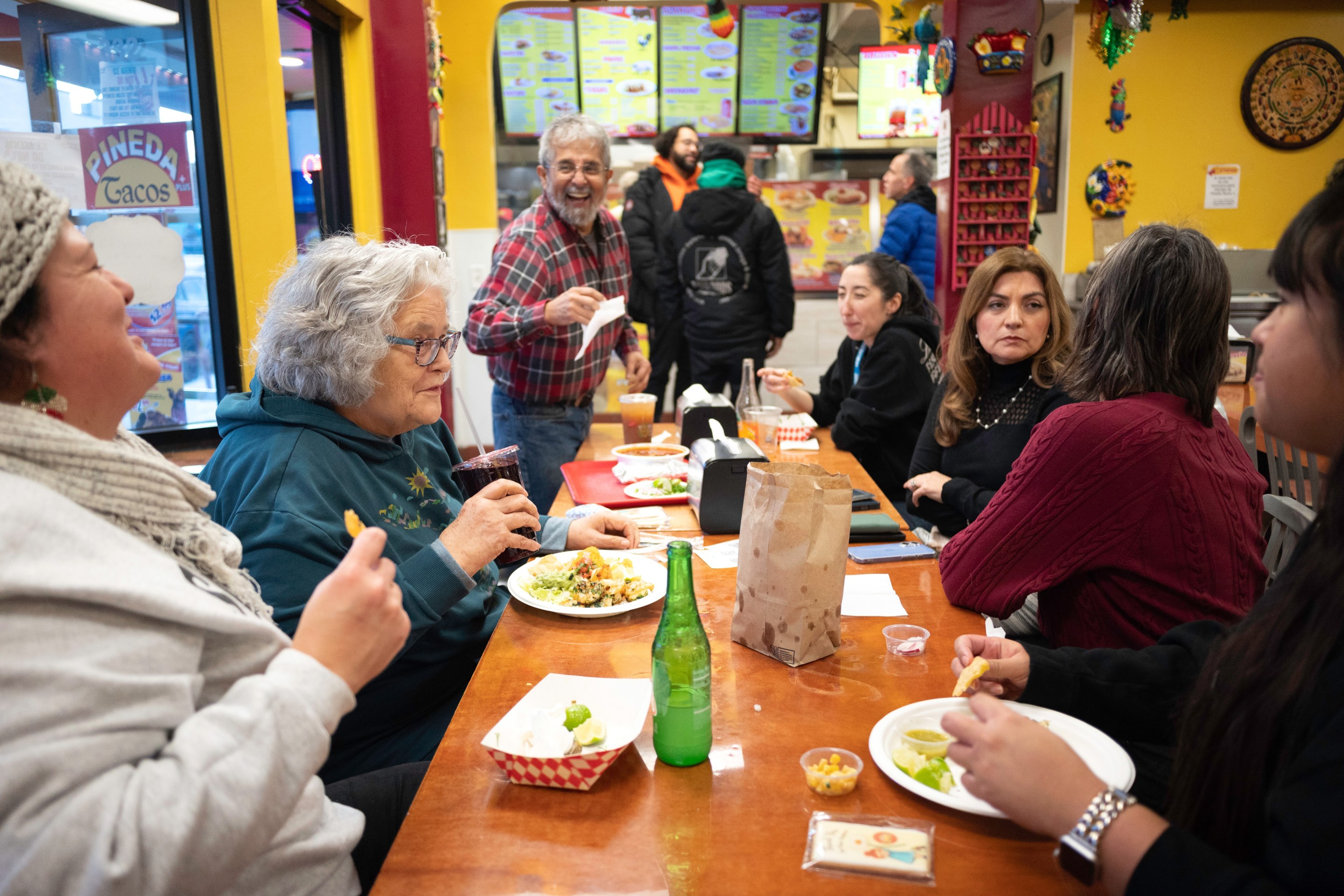Bri Smith became the head brewer at Modist Brewing Co. in the North Loop at the end of May. In doing so, she became the first Black woman head brewer in Minnesota history, and one of only a handful in the country.
In my two years writing the Doin’ Beers column for this writer-owned, reader-funded local alternative media website, I’ve never been more excited by a bit of brewing industry news than I was to hear about Smith’s promotion. Her path to head brewer is a rare example of positive change and growth in the brewing industry as we inch toward inclusivity and diversity that reflects our own communities.
She’s also, as I found out, just a really cool person.
I sat down with Smith last week to talk about her journey to becoming head brewer of one of the most popular breweries in the Twin Cities, and the work that still needs to be done to evolve the brewing industry.
Do you have a gateway beer that got you into beer and brewing?
The first beer that I enjoyed was North Coast’s Old Rasputin, their Russian Imperial Stout.
What was it about Old Rasputin that spoke to you compared to other beers?
At the time that I first had that beer I was serving at the restaurant that used to be on Washington called Haute Dish, which was kind of like an upscale casual dining restaurant place. We got free shift drinks, so I just kind of was trying all the beers there, and we had Old Rasputin on year-round. Nobody else drank it except me. I kind of fell in love with it, with it being available, and with genuinely enjoying beer for the first time.
I also got into craft beer through stouts and darker beers, so I totally get it. If you were able to force everyone who drinks to try one beer, what would it be and why?
I want to say Old Rasputin again for this, because I feel like so many people are intimidated by more robust beers like that. But really, I think I would just encourage people to keep trying beer until they find one that they like, because there's so many different styles, and it's kind of hard to write off the entire category of “beer” if you haven't tried every single style. But yeah, Old Rasputin is my tried and true. I love that beer.
How would you personify Old Rasputin?
Probably like the intimidating bouncer of a dive bar who has a bunch of tattoos and piercings, and you would think they were pretty scary. But then you have one conversation with them, and they're a total sweetheart.
Is Modist going to make an Old Rasputin-esque beer in the near future?
We release a barrel-aged stout almost every anniversary that we have. Depth was our imperial stout this year. Our anniversary was over 4/20 weekend. So we do our fair share of barrel-aged stouts. It's just the haze bros love us over here, so we turn out a lot more hazy beers.
What's your favorite beer that you've brewed?
Probably the watermelon gose that I brewed last year—last summer—for the first time. It's called Watermelon Collie, and it's just a traditional kettle sour. And I believe it was the first kettle sour that Modist had ever done. So that was pretty cool. True kettle souring. We've done sours before, but it's usually just acidifying on the back end of things. We tried to source watermelon puree, which is usually what we do for anything we add fruit to. But everything that we were sampling was tasting really tinny and tomatoey, almost. So we decided to go with fresh watermelon. So we had to process and puree, in-house, an entire pallet of watermelon. It was delightful. It's one of the most refreshing things I've ever tasted. And it got scaled up this year, so we're doing twice as much, which means a lot a lot more watermelon to cut up.
Who do you think is really knocking it out of the park in the Minnesota brewing scene?
Arbeiter is my favorite brewery. It has been, I feel like, since they've opened. And kind of going back to the haze bro trend, they're proving that you do not need to cater to that audience to be successful in the craft industry here. And that's really cool, because a lot of times, it's like going into a brewery and it's like, “Hey, would you like 10 of these hazy IPAs?” It’s exhausting sometimes. So it's nice to be faced with 10 different lagers that you want to try, and Arbeiter cares about their community too. It shows through the work that they're doing. They just keep collecting awards, too, which is awesome.
I read that you got started at Modist with no prior brewing experience. I'm curious—what drew you to Modist and to brewing more generally?
I had always been interested in beer, but at the time, before I started working here, I had been a career server, working front of house at restaurants my whole adult life. I knew Modist and followed them—or followed us—on Instagram. So, I saw a job posting, and it was the first Covid quarantine shutdown, and I got laid off. I really needed a job, to be completely honest with you, and they hired me. I was working crowler delivery, like in residential neighborhoods, which was not a position that existed here before. And then, once quarantine was over, there wasn't really a demand for people needing crowlers delivered to their home. So that position got eliminated, and I was asked to join the packaging team full time. And then a brewing position opened up, and the opportunities kept being presented to me. I just kept saying, “yes” to them.
I was also in the Brewing Change Collaborative at that time. I joined in 2020 when I was working at a brew pub serving. So I've always kind of been around craft beer and have enjoyed it, but Modist took a chance on me, and a path became illuminated that hadn't really existed for me as far as my career goes. I just really appreciate it that they took the time to take a chance on me.
Do you think that your story is something that happens often, or is it something that you would consider very contextual to Modist?
I think it's very contextual. I don't want to say I got lucky. I did work hard, and I think I've earned my role here, but I think I'm very fortunate to have found the right place. I think, in the industry, it's easy enough to get hired at an entry-level position, but for more established roles, like “brewer” or anything beyond something with no experience, it's often filled by some guy who knows a guy, who knows a guy. There’s a lot of nepotism, if you will, in the industry where some jobs won't even get posted because, like, “I'm just gonna reach out to my buddy,” and then my buddy's working here. It's a lot of that. That's what I've heard from friends that have bopped around the industry a bit. The taproom manager that hired me just really liked my resume. And that's kind of it. My resume stood out to her, and the rest of the things just kind of fell into place, if you will.

I’m curious how the sense of beer being for men, and especially for white men, has impacted your path in brewing.
Yeah, there's a lot of, I think, what you might guess would go on in that dynamic. I have old dudes coming up to me at beer festivals, asking me how long I've been a beer tender, or different brewery owners putting their hands in my face because they want me to stop talking and they shush me. I have people trying to collect me as a token member for different social groups, and it's just as exhausting as being a Black woman in any other setting. So, I don't want to say it's specific to craft beer. It's just specific to the existence of being a person of color who's also a woman.
But that being said, the good and the bad come hand in hand. Like I mentioned, I'm in BCC (Brewing Change Collaborative) and three of our members hosted the Minnesota Brewers Cup awards this year, and I got to attend that and see my friends hosting and putting on a great show for all of us. And that was the epitome of growth and diversification in the beer industry in real time. And it was super cool to see that happen. When I started brewing at Modist I was the only Black woman brewing commercially in the state, and now there's like three of us.
What do you think needs to change in order for things to continue to evolve and for the brewing industry to become more inclusive?
That is such a loaded question, and I don't know that I have the answer for that, but I really think that something that would be a great start, would be that if the people that do have the power to teach and give people chances actually do those things. Equity brings change, and companies should start investing in the people that they want to invest in their company. Which is why I feel so close and grateful to be at Modist—because I feel like Modist is also grateful to have me, and that's a cool, tangible feeling.
I’d like to hear more about your experience with the Brewing Change Collaborative, and if you've ever done anything with Team Nevertheless. What is your experience with these sorts of advocacy organizations?
I love Brewing Change Collaborative. I have been a member for five years. I kind of do the social media for us. I'm familiar with Team Nevertheless, but I'm not a member of Team Nevertheless, because Brewing Change Collaborative really fills my cup.
To be completely transparent, I feel like I have a second family, and I have had opportunities to go to places—like a private tour of Summit Brewing, or a tour of Rahr Malting—all these opportunities have been presented to me through Brewing Change Collaborative, and I have fostered relationships that have been invaluable to me. It's a really great group to be a part of.
Do you think that Brewing Change has been able to make a difference broadly, or is some of that more about building personal connections with other members, and that avenue towards change?
I definitely think both of those things are happening. We are still growing as a nonprofit ourselves, so we have a lot of growing pains, and we could be better about getting ourselves out there. But as far as the people that are already active in our group—we meet up every month or more. We have official meetings every month, but I often see more than one person in that group on a weekly basis because we're actually friends, and we do actually care about each other outside of our beer group.
It feels trivial to call it a “beer group,” but it's so much more than that to the people that are involved and our growth and development is showcased in events like the Minnesota Brewers Cup. People have started to hear about us and ask us to host different things like that, or consult with their brewery about how they can be more conscientious of diversity, equity, and inclusion in their place of business. And it's cool to be looked at as kind of like a leadership option for people that are trying to improve the community of their business.
From your experience, are there any breweries that, in your opinion, are doing the work necessary to diversify the brewing industry?
Yeah, I would toss out Arbeiter again, and probably La Doña, for the simple fact that they are regularly offering events that highlight and celebrate Latinx and AAPI culture and community, and also touching back on Arbeiter, the civil unrest that happened after George Floyd's murder has been showcased and not forgotten or swept under the rug. And Arbeiter brings it up every anniversary, every May 25 and throughout the year, and it's cool that people are trying to uplift their communities in these difficult times right now.
Are there particular brewers that you admire, particularly BIPOC folks and women, that you think people should be paying more attention to?
Breeze Galindo. She is the founder of MiLuna Brewing [in New York], which I believe is in its fundraising stage. She also used to be the Lead Brewer at Other Half. They host a hazy IPA festival that I attended the first year that I started working at Modist, and I was invited to go out there—or the first year that I was brewing at Modist, I should say—and she asked me to speak for their women's forum that they were holding. And it was a very cool opportunity, and a whirlwind.
She's also like a mentor at MJF Foundation, and does a lot for Latinas and BIPOC women in general, for the industry. But for more Minnesota specific—anybody. Any person of color or woman that you see in this industry. I think you should just by default, be rooting for them.
I was recently asked how to get more women involved in brewing, and I was really struggling to come up with a response. Because it seems like such a multi-layered situation, right? Like, I don't think there is one answer. But, I'm curious what you would say. How do you get more women—more Black women—involved in brewing?
I think that starts with the people who are already here. And for lack of a better phrase, not gatekeeping spaces. You can make your space welcoming to different people—for other people to want to be there. This is probably one of my first jobs ever where the men don't downtalk me, and that's sad. And, I think that's very typical of women's experiences in any workplace. I feel very welcome and safe here, and I don't know how to explain to other men that really it's all about feeling welcome and not just like you're being tolerated. And just a willingness to teach people things, because not everybody knows everything.
If folks were wanting to get involved with the Brewing Change Collaborative, how would you recommend they do that?
Well, you can follow us on any social media platform @brewingchangecollab. We also have a website which is brewingchangecollaborative.org, and I believe there's probably a contact page on the website, but I manage the Instagram, and I'm very responsive. So we have an ongoing group chat if you'd like to really jump in feet first. But yeah, we have meetings every fourth Thursday of the month, and those meeting places can also be found on Instagram or if you get added to our email list by reaching out to us. Through either of those means, we can email you when the event is created. This month's meeting will be at Sea Salt on the 26th at 6:30, and you can literally just show up.
This interview has been edited for length and clarity.







